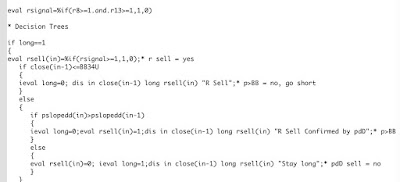
We made some donations to help with the recovery from the Sichuan Earthquake. Half the money we gave through
San Diego Zoo to help the Wolong Panda Reserve (both of us have been at different times to San Diego Zoo where there are both pandas and koalas). The other half we gave to the
Australian Red Cross. We thought about giving money to
this charity but contributions to it are not tax deductible while those to the Australian Red Cross are. Americans are used to being able to claim a tax deduction for a contribution to any non-profit. Here, charities must either be named in the Act of Parliament or
meet very strict criteria. The Charles Foundation has chosen not to pursue tax deductible status even though it is an Australia based charity. Needless to say pretty much all foreign charities, including San Diego Zoo, are not eligible for tax deductibility in Australia.
I first became aware of these complications when I ran a small Australian non-profit - an academic society - we explored getting tax-deductible status - but it was just a non-starter. I think this discriminates in favor of large established charities - you can take a deduction for a contribution to an Australian university, but not to the educational efforts of our fledging academic society.
There are other strange restrictions on the tax deductibility of giving. In the US, giving appreciated assets to charities is really big. Buy a house for $1,000,000 and let its value rise to say $3,000,000. Leave it in your will to charity and your estate takes a $3,000,000 deduction against the value of the estate for estate tax purposes. In Australia, you can't donate property to charity if you've owned it for more than 12 months! We don't have an inheritance tax here either which also discourages giving (though I'm not a fan of inheritance taxes :) - though requiring people to give 10% of an inheritance to charity or pay an equivalent tax might be a good idea). Actually if the heirs donate the house within 12 months they'll be able to claim a $3,000,000 deduction in Australia but if they wait too long, they'll have to sell it, pay 23.25% tax on the $2 million gain (the top long-term CGT rate - unless they go and live in the house which will make the sale tax free) and then donate the remaining cash to charity, which they will be able to claim a deduction for. In the case of shares, you must hold them for 12 months or more (how weird is that?)... so a Warren Buffett could donate shares to charity and claim a massive deduction against his other income but not real estate or art works etc.
So it's not surprising that the U.S. has the highest level of charitable giving per capita in the world (which somewhat mitigates its low level of official foreign aid) and Australia a much lower level, though
still ahead of many other developed economies.
Well, I don't know the answer to the question in the title, except that the government seems to trust people less on this here than the U.S. government does. Maybe it's due to the more secular nature of Australian society? After reviewing the tax deductions available for charitable giving in other countries, Australia is actually pretty generous compared to many.
A tip, donate in the name of the partner with the highest marginal tax rate if you are part of a couple. Don't donate as a couple if your tax rates differ.






